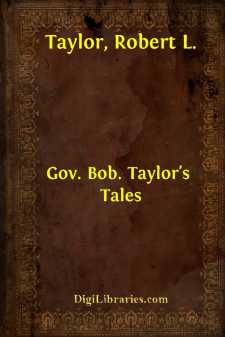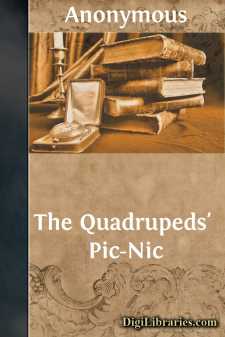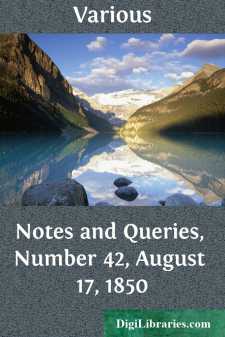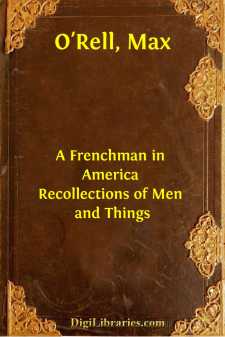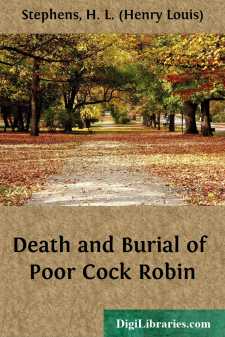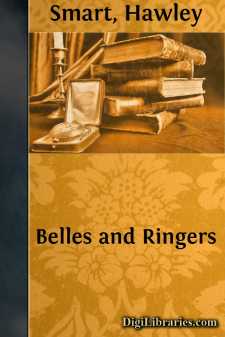Categories
- Antiques & Collectibles 13
- Architecture 36
- Art 48
- Bibles 22
- Biography & Autobiography 813
- Body, Mind & Spirit 142
- Business & Economics 28
- Children's Books 17
- Children's Fiction 14
- Computers 4
- Cooking 94
- Crafts & Hobbies 4
- Drama 346
- Education 46
- Family & Relationships 57
- Fiction 11829
- Games 19
- Gardening 17
- Health & Fitness 34
- History 1377
- House & Home 1
- Humor 147
- Juvenile Fiction 1873
- Juvenile Nonfiction 202
- Language Arts & Disciplines 88
- Law 16
- Literary Collections 686
- Literary Criticism 179
- Mathematics 13
- Medical 41
- Music 40
- Nature 179
- Non-Classifiable 1768
- Performing Arts 7
- Periodicals 1453
- Philosophy 64
- Photography 2
- Poetry 896
- Political Science 203
- Psychology 42
- Reference 154
- Religion 513
- Science 126
- Self-Help 84
- Social Science 81
- Sports & Recreation 34
- Study Aids 3
- Technology & Engineering 59
- Transportation 23
- Travel 463
- True Crime 29
Sort by:
by:
Robert L. Taylor
"THE FIDDLE AND THE BOW." I heard a great master play on the wondrous violin; his bow quivered like the wing of a bird; in every quiver there was a melody, and every melody breathed a thought in language sweeter than was ever uttered by human tongue. I was conjured, I was mesmerized by his music. I thought I fell asleep under its power, and was rapt into the realm of visions and dreams. The...
more...
by:
Evelyn E. Smith
Johnson went to see the others off at Idlewild. He knew they'd expect him to and, since it would be the last conventional gesture he'd have to make, he might as well conform to their notions of what was right and proper. For the past few centuries the climate had been getting hotter; now, even though it was not yet June, the day was uncomfortably warm. The sun's rays glinting off the...
more...
by:
Various
THE SUPER-PIPE. When Jackson first joined the jolly old B.E.F. he smoked a pipe. He carried it anyhow. Loose in his pocket, mind you. A pipe-bowl at his pocket's brim a simple pipe-bowl was to him, and it was nothing more. Of course no decent B.E.F. mess could stand that. Jackson was told that a pipe was anathema maranatha, which is Greek for no bon. "What will I smoke then?" said Jackson,...
more...
by:
Anonymous
NO doubt you have heard how the grasshoppers’ feasts“Excited the spleen of the birds and the beasts;”How the peacock and turkey “flew into a passion,”On finding that insects “pretended to fashion.”Now, I often have thought it exceedingly hard,That nought should be said of the beasts by the bard;Who, by some strange neglect, has omitted to stateThat the quadrupeds gave a magnificent...
more...
CANTO XI "O thou Almighty Father, who dost makeThe heavens thy dwelling, not in bounds confin'd,But that with love intenser there thou view'stThy primal effluence, hallow'd be thy name:Join each created being to extolThy might, for worthy humblest thanks and praiseIs thy blest Spirit. May thy kingdom's peaceCome unto us; for we, unless it come,With all our striving thither...
more...
SECTION I. INTRODUCTORY. In the following pages I have examined the conclusions at which the author of a book entitled "Supernatural Religion" has assumed to have arrived. The method and contents of the work in question may be thus described. The work is entitled "Supernatural Religion, an Inquiry into the Reality of Divine Revelation." Its contents occupy two volumes of about 500 pages...
more...
by:
Various
NOTES ALFRED'S OROSIUS. The two exceedingly valuable elucidations which the geography of King Alfred relating to Germany (intercalated in the royal author's translation of Orosius), has received from your learned contributors MR. R.T. HAMPSON (Vol. i., p. 257.) and MR. S.W. SINGER (Vol. i., p. 313.) induce me to offer some new views on the same subject. From my having passed a long series of...
more...
by:
Max O'Rell
CHAPTER I. Departure—The Atlantic—Demoralization of the “Boarders”—Betting—The Auctioneer—An Inquisitive Yankee. On board the “Celtic,” Christmas Week, 1889. In the order of things the Teutonic was to have sailed to-day, but the date is the 25th of December, and few people elect to eat their Christmas dinner on the ocean if they can avoid it; so there are only twenty-five saloon...
more...
Who killed Cock Robin?With my bow and arrow,I, said the Sparrow,I kill'd Cock Robin.Who saw him die?With my little eye,I, said the Fly,I saw him die.Who caught his blood?With my little dish,I, said the Fish,I caught his blood.Who'll make his shroud?With my thread and needle,I, said the Beetle,I'll make his shroud.Who'll dig his grave?With my spade and trowel,I, said the Owl,I'll...
more...
by:
Hawley Smart
BELLES AND RINGERS. CHAPTER I. TODBOROUGH GRANGE. Todborough Grange, the seat of Cedric Bloxam, Justice of the Peace, and whilom High Sheriff for East Fernshire, lies low. The original Bloxam, like the majority of our ancestors, had apparently a great dislike to an exposed situation; and either a supreme contempt for the science of sanitation, or a confused idea that water could be induced to run...
more...


